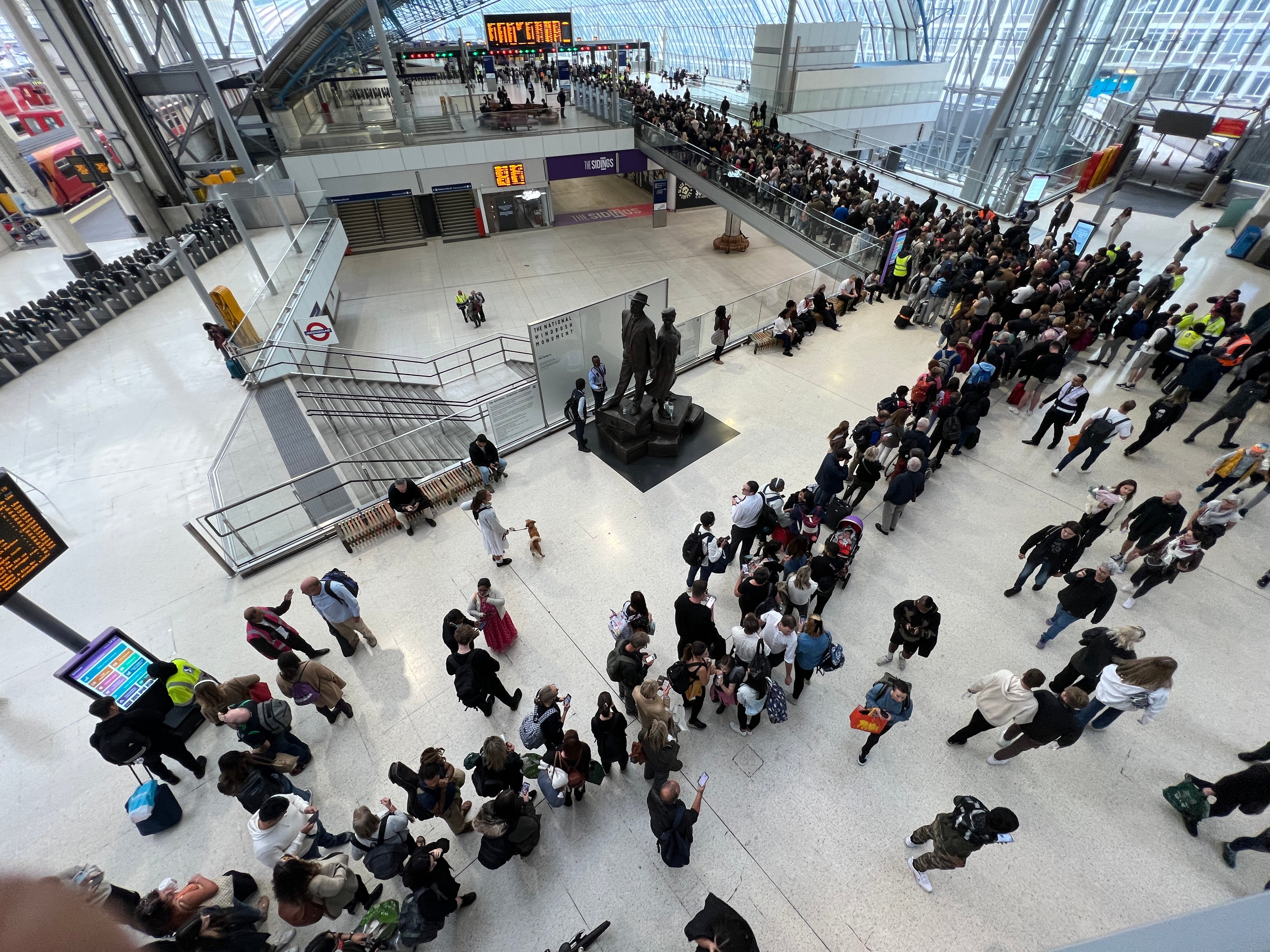More misery for rail commuters as RMT calls another national strike
40,000 workers for Network Rail and 15 train operators will walk out on 8 October

Rail passengers will find services disrupted by strikes on five of the first nine days in October.
The RMT union called on more than 40,000 workers employed by Network Rail and 15 train operators on Saturday 8 October. The stoppage will also affect trains on the following day.
The newly announced strike is in addition to industrial action on Saturday 1 October by the RMT and Aslef, the train drivers’ union, which will disrupt trains the day after.
The drivers working for a dozen train operators will also walk out on Wednesday 5 October. It means that of the first nine days of next month, normal services can be expected only on 3, 4, 6 and 7 October.
Announcing the additional strike, the RMT general secretary, Mick Lynch, confirmed that the union had been involved in talks with the new transport secretary, Anne-Marie Trevelyan.
Mr Lynch said: “We welcome this more positive approach from the government to engage with us as a first step to finding a suitable settlement.
“However, as no new offer has been tabled, our members have no choice but to continue this strike action.
“We will continue to negotiate in good faith, but the employers and government need to understand our industrial campaign will continue for as long as it takes.”
The main effect of the strike will be to close down at least half the passenger railway due to the absence of around 5,000 Network Rail signallers. Some trains will run on the remaining portion of the network, but with a much-reduced service.
A Network Rail spokesperson said: “This latest strike will again mean very significant disruption for passengers, and we’ll be asking people to only travel if absolutely necessary due to the reduced service that will be in place. Full timetables for all upcoming strike days will be published in due course.”
The train operators include the large London-focused firms: Greater Anglia, GTR (including Southern, Great Northern, Thameslink at the Gatwick Express), Southeastern and South Western Railway.
Key intercity operators will be affected: Avanti West Coast, CrossCountry, East Midlands Railway, Great Western Railway, Hull Trains, LNER and TransPennine Express.
The remaining operators are Chiltern Railways, c2c, Northern Trains and West Midlands Trains.
Northern Ireland Railways and the Island Line on the Isle of Wight will not be affected.
The rail unions are engaged in a deep and bitter dispute over pay, jobs and working practices with Network Rail, the train operators and the government.
Union bosses say the Department for Transport (DfT) is pulling strings and preventing the operators from making pay offers that would approach the current rate of inflation – almost 10 per cent.
The government maintains that any pay settlement must include productivity agreements for “modernisation” of the rail network. Since the coronavirus pandemic, revenue from tickets has slumped by one-fifth with far fewer commuters buying season tickets.
A spokesperson for the Rail Delivery Group, representing train operators, said: “This strike will hit sports fans, friends and families planning to meet up and the RMT members themselves who have already lost, at the very least, many hundreds of pounds due to industrial action since June.
“Rather than staging more counterproductive action that will further alienate the very customers we need to secure the long-term future of the industry, the RMT leadership should commit to serious reform. That is how we can improve services and deliver a fair deal for our people, passengers and for taxpayers.”
The rail strike call was made on World Car Free Day.



Join our commenting forum
Join thought-provoking conversations, follow other Independent readers and see their replies
Comments